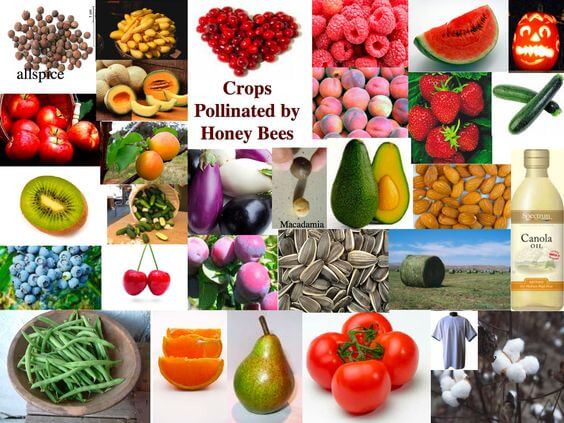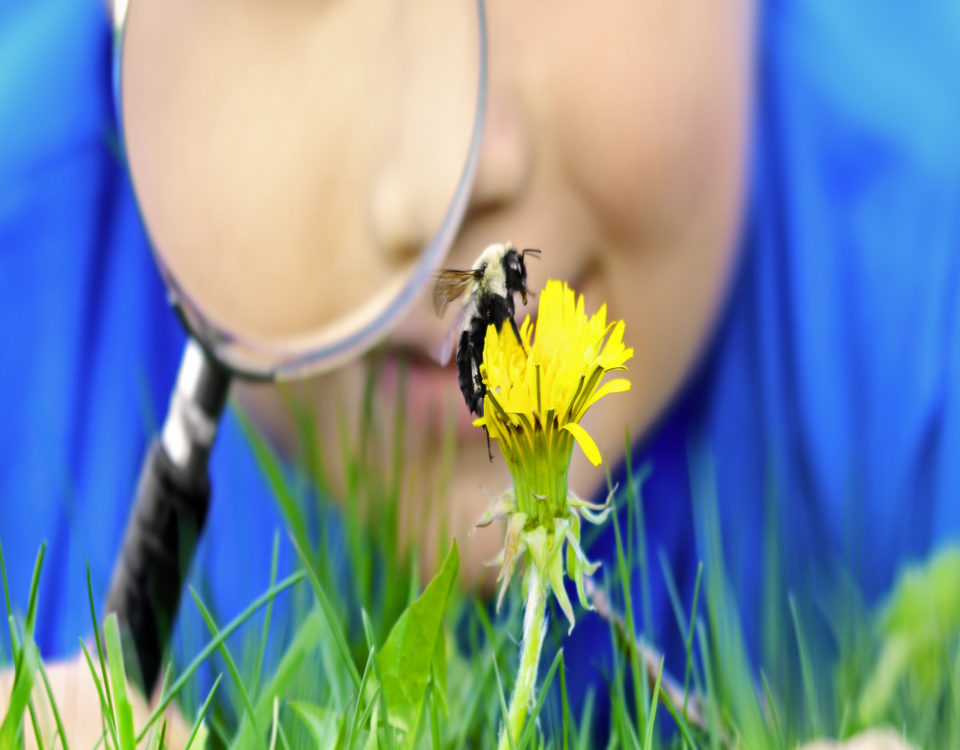- All-In-One Beekeeping for the Bees
- +1-608-728-8233
- info@beepods.com
The Beauty and Harmony of Community Urban Gardens, Honeybees and Pollination

Crops pollinated by honey bees in an urban garden

photo from berkeley.edu
Many people don’t have the outdoor space to maintain their own vegetable garden. This is where an urban garden or garden club. If you are already a member of a community garden, you might be wondering what’s next. This article touches on a few aspects of urban gardening and the role and importance that honeybees can play in improving the overall success of your neighborhood produce production project. Whether you’ve already participated in this type of community activity before or have never joined a community garden, read on for a few insights to pique your curiosity about gardening and pollination.
You’ll find community gardens sprouting up all over the world. Community gardens have many benefits and there are different groups of people coming together to form these gardens, including homeowner associations, religious organizations, social service organizations, corporations and neighborhood groups. Most community gardens are designed for growing food, vegetables and fruits. There are many reason that urban gardening is a growing trend. For example, battling rising food costs or a exploring your appreciation for sustainable living.
Community gardens are a great way to beautify your neighborhood. They allow for people, who might not otherwise be able to do it on their own, to grow fruits and vegetables. Some urban gardens can be used as a part of a larger garden tour for the rest of the community to enjoy. Many people just enjoy the social and educational opportunities that an organic, down-to-earth collaboration such as this can bring. The motivation behind participating in an urban garden varies from person to person, but no matter your driving force, some things always remain true. Pollination is an important part of growing most fruits and vegetables.
How pollination works is fairly basic, but beautiful at the same time. Pollination by bees occurs when the female bees fly from flower to flower, gathering nectar and pollen to bring back to their hives for storage and consumption. These bees drop grains of pollen onto other flowers, thus fertilizing them.
Honeybees have become a vital part of the pollination of crops and many of the native bees important for crop pollination are the same bees frequenting urban gardens . Even in our own front yards, bees play a role in pollination of many garden plants. Gardeners of all levels will find that planting to attract bees improves the overall health of their garden.
Of course, there are many different types of pollination that can occur in your community garden. For example, beans, cucumber, zucchini, pumpkin, squash, melons, clover, mint and basil all depend on many various types of bees for pollination. However, honeybees are not the be-all and end-all of pollinating an urban garden.

Crops pollinated by honey bees in an urban garden
In all fairness, while honeybees do make great pollinators, it must be brought to your attention that there are non-invasive (native) bee species that do a much better job at pollination for certain types of plants. In a somewhat controversial and largely discussed Facebook note, titled, “List of Crops That Don’t Need Honeybees“, published in 2013, Kaz Vorpal mentions how many crops don’t necessarily depend on bees for pollination. For example, there are self-fertilized plants such as; tomatoes, wheat, peanuts, green peppers, sweet peas and eggplant that don’t require pollination by any type of bee at all. Also, there are others types of pollination that exist, such as wind pollination (corn and pecans fit in this category).
Kaz Vorpal goes on to state that some vegetable plants, such as squash and cucumbers are better pollinated by native bees than they are by honeybees. Another category of plants that don’t require pollination by honeybees are those that don’t involve a “fruit”, such as lettuce, carrots and beets. Yes, honeybees do visit some of the plants, that Kaz lists, but in most cases there are alternative methods that might be more effective at pollinating than honey bees.
Urban farming in general is growing in popularity. An example of this is the New York Barclay Hotel that has a rooftop garden that includes an apiary. The hotel’s kitchen uses the honey produced by the bees that travel to pollinate plants as far as five miles away.
Earlier in this article it is mentioned that pollination is a beautiful thing. So, in closing, to expound upon this in more detail, we’ll finish by introducing you to a short video titled “The Beauty of Pollination” published to Youtube in 2011. The producer, Louie Schwartzberg, writes, “The seductive love dance between flowers and pollinators sustains the fabric of life and is the mystical keystone event where the animal and plant worlds intersect that make the world go round.” The video shows scenes from the stunning 80-minute documentary he directed, called, “Wings of Life”, a film about the threat to essential pollinators that produce over a third of the food we eat.
Brad James
Latest posts by Brad James (see all)
- Where does pollinator week come from? A brief History of Pollinator Week and its impact on supporting pollinators - June 17, 2019
- Honey Bee Breeds and Their Attributes - March 2, 2018
- My 3-Year-Old Daughter Loves Bees - December 5, 2017



